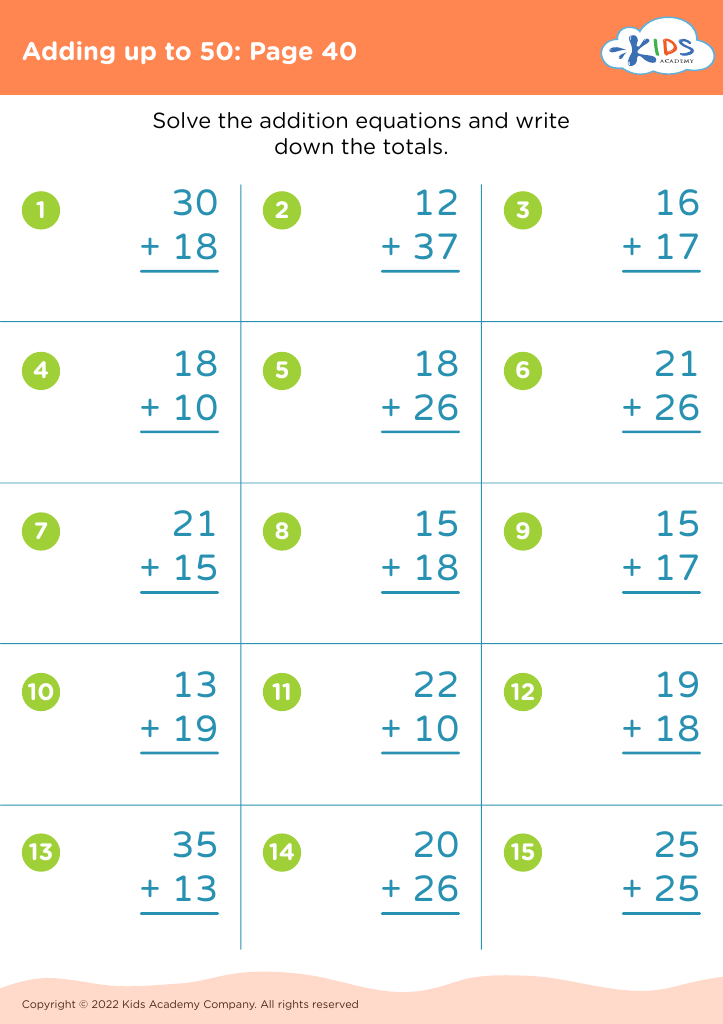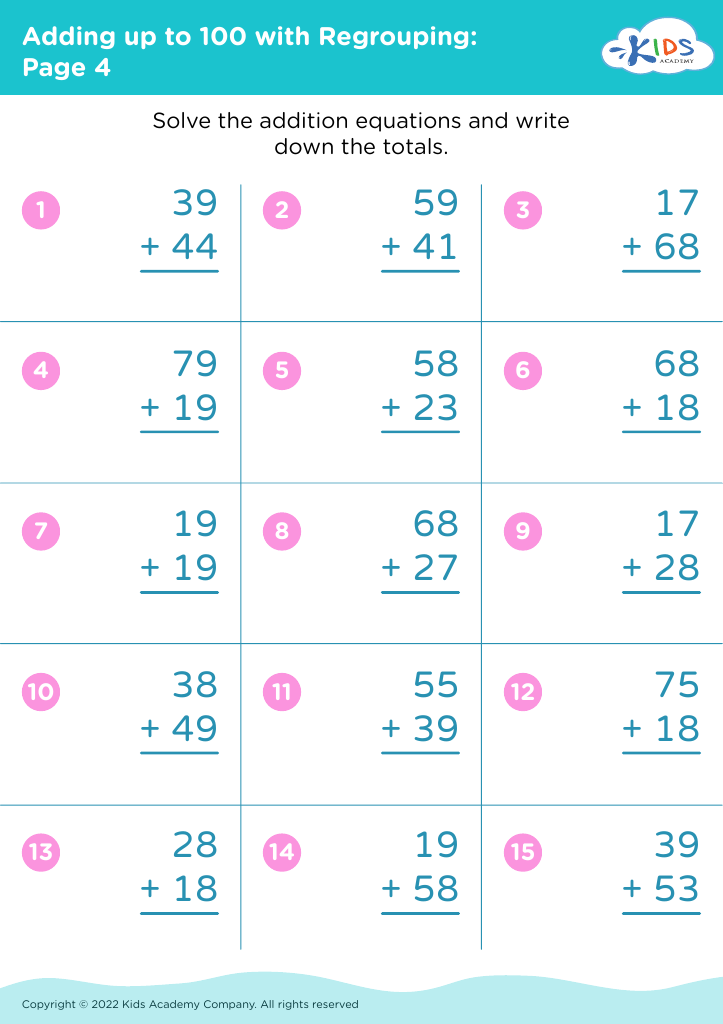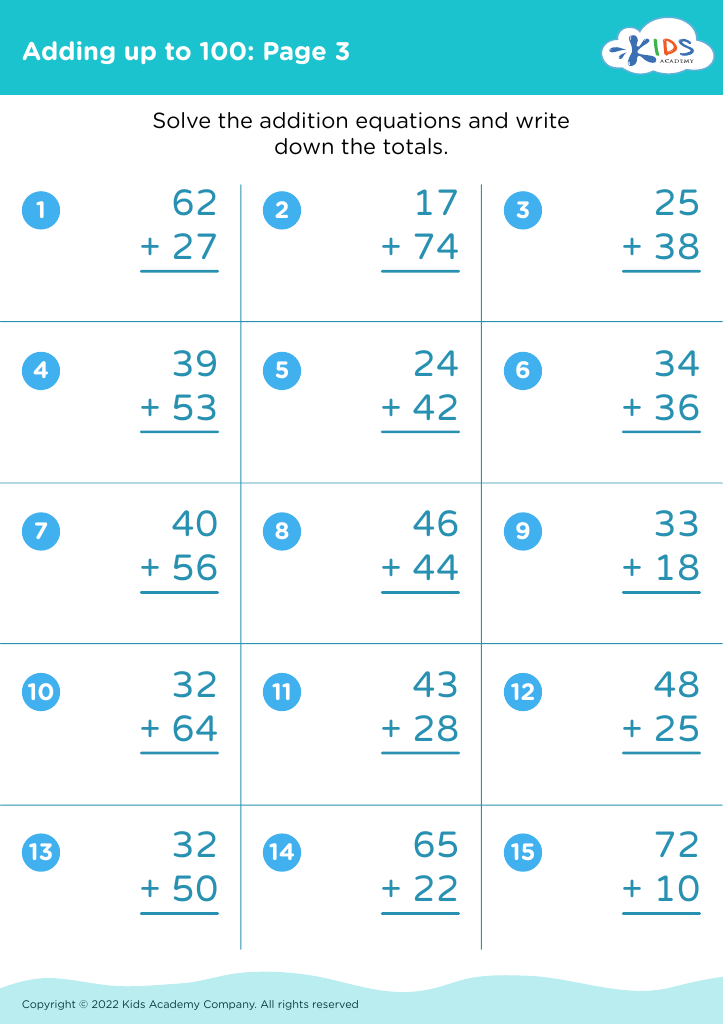Spelling practice Addition Worksheets for Ages 3-9
4 filtered results
-
From - To
Discover our engaging "Spelling Practice Addition Worksheets" designed for children aged 3-9. These printable resources seamlessly blend spelling and math skills to enhance your child's learning experience. Each worksheet features fun, age-appropriate addition problems that encourage kids to practice writing numbers and words. With colorful illustrations and interactive formats, children will find learning enjoyable and rewarding. Ideal for home or classroom use, these worksheets promote early literacy and numeracy skills, setting a solid foundation for future academic success. Boost your child's confidence and proficiency in spelling and addition today, while fostering a love for learning through our comprehensive resources!
Parents and teachers should prioritize spelling practice for children ages 3-9 because it lays the foundation for literacy skills that are essential for academic success. Early spelling activities enhance phonemic awareness, helping children understand how sounds form words. This critical skill is linked to reading proficiency, which is a predictor of future academic achievement.
Additionally, spelling practice encourages vocabulary development. As children learn to spell new words, they not only remember the words but also grasp their meanings, leading to richer language skills. Furthermore, engaging with spelling through games, activities, and writing reinforces fine motor skills and cognitive development, making learning enjoyable and effective.
Moreover, children often face high expectations in school-related tasks. Building strong spelling skills early can boost their confidence, reduce anxiety, and promote a positive attitude towards learning. Engaging parents in this practice through home activities fosters a supportive learning environment, bridging school and at-home learning.
Overall, investing time in spelling practice from an early age cultivates a multitude of skills that support a child’s academic journey and lifelong love for learning. It prepares them for the complexities of language, critical thinking, and effective communication in an increasingly literate world.
























